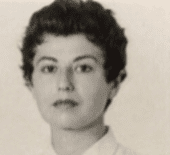Ida Jean Orlando - Nursing Theorist

Regardless of how well thought out a nursing care plan is for a patient, obstacles to the patient’s recovery may come up at any time. This may cause problems for the original nursing care plan, and it’s the nurse’s job to know how to deal with those obstacles so the patient can continue to recover and stay on the path to health. Ida Jean Orlando’s Deliberative Nursing Process is a nursing theory that allows nurses to create an effective nursing care plan that can also be easily adapted when and if any complications arise with the patient.
Biography of Ida Jean Orlando
Ida Jean Orlando was a first generation Irish American born in 1926. She received her nursing diploma from New York Medical College at the Lower Fifth Avenue Hospital School of Nursing. She earned her Bachelor of Science in Public Health from St. John’s University in Brooklyn, and her Master of Arts Degree in Mental Health Nursing from Teachers College, Columbia University. She is married to Robert Pelletier and lives in the Boston area.
Career of Ida Jean Orlando
Orlando was an associate professor at Yale School of Nursing, and while there, served as the Director of the Graduate Program in Mental Health Psychiatric Nursing. It was also at Yale that she was project investigator of a National Institute of Mental Health grant. The research from this grant led to Orlando’s development of the Deliberative Nursing Process published in The Dynamic Nurse-Patient Relationship: Function, Process, and Principles (NLN Classics in Nursing Theory) in 1961.
She also worked as the director of a research project at McLean Hospital in Belmont, Massachusetts. This research led to the publication of The Discipline and Teaching of Nursing Process (an evaluative study) in 1972. Orlando has served as a board member of Harvard Community Health Plan.
Ida Jean Orlando’s Contribution to Nursing Theory: Deliberative Nursing Process
Ida Jean Orlando’s Deliberative Nursing Process is set in motion by the behavior of the patient. According to the theory, all patient behavior can be a cry for help, both verbal and non-verbal, and it is up to the nurse to interpret the behavior and determine the needs of the patient. The Deliberative Nursing Process has five stages: assessment, diagnosis, planning, implementation, and evaluation.
In the assessment stage, the nurse completes a holistic assessment of the patient’s needs. This is done without taking the reason for the encounter into consideration. The nurse uses a nursing framework to collect both subjective and objective data about the patient.
The diagnosis stage uses the nurse’s clinical judgment about health problems. The diagnosis can then be confirmed using links to defining characteristics, related factors, and risk factors found in the patient’s assessment. The planning stage addresses each of the problems identified in the diagnosis. Each problem is given a specific goal or outcome, and each goal or outcome is given nursing interventions to help achieve the goal. By the end of this stage, the nurse will have a nursing care plan.
In the implementation stage, the nurse begins using the nursing care plan. Finally, in the evaluation stage, the nurse looks at the progress of the patient toward the goals set in the nursing care plan. Changes can be made to the nursing care plan based on how well (or poorly) the patient is progressing toward the goals. If any new problems are identified in the evaluation stage, they can be addressed, and the process starts over again for those specific problems.
The goal of this model is for a nurse to act deliberately rather than automatically. This way, a nurse will have a meaning behind the action which means the patient gets care geared specifically toward his or her needs at that time. This nursing process is also one that can easily be adapted to different patients with different problems, and can be stopped at anytime, depending on the patient’s progress or health. This makes Orlando’s theory universal for the nursing field.
Nursing care has to be flexible. Not only does a nursing care plan depend on the needs of the patient at the time of admittance, but it also needs to be able to change when and if any complications come up during the treatment and recovery process. Ida Jean Orlando’s Deliberative Nursing Process directly addresses this need for flexibility, and helps nurses focus on the patient rather than simply sticking to a nursing care plan no matter what.
For more detailed information: Orlando’s Nursing Process Theory
